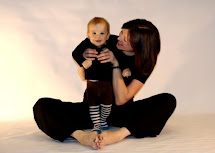Today is my first day at the studio without the children. They are both in kindergarden today and it feels so quiet, verging on peaceful, without sounding mean! So, I have made a cup of tea, am listening to Colleens latest podcast (www.compassionatecooks.com) and was reading the news online when I came upon the below article. So before I get on with my artistic plans for the day - looking at rough cuts of the shots my colleague did at the weekend for the childrens tv teaser and working on business plans to try and get some money so we don't have to work for free for much longer! Anyway...waffling again... the following article is courtesy of the BBC. I thought it was interesting to share with you.
Anger over £1.99 Tesco chickens
| Tesco says the price has been lowered, not the welfare standards |
Animal welfare and farming groups have criticised the supermarket giant Tesco for cutting the retail price of its standard whole chicken to £1.99.
The store says bringing down the price of a bird from £3.30 will benefit "shoppers on a budget".
The National Farmers' Union (NFU) says the move is "extremely ill-judged and short sighted".
Tesco has also increased orders for free range birds, which it says makes up 30% of its total chicken sales.
The supermarket's media director, Jonathan Church, said: "We have been working hard for a while to increase the amount of higher-welfare chicken we sell."
Reflecting on recent media coverage of chicken production by celebrity chefs Hugh Fearnley-Whittingstall and Jamie Oliver, Mr Church added that the debate "has helped raise awareness of the choice available to customers".
But an NFU spokesman said the decision to cut the cost of standard, intensively-reared chicken was "completely the wrong thing" to do.
A spokesman told the BBC: "It's extremely ill judged and short sighted.
No-one should feel guilty buying a chicken just because it is good value
"They're devaluing the product and doing it at a time when, overall, the market is strengthening and chicken prices are rising.
"They're sucking value out of the supply chain and unless Tesco is going to subsidise this, it is not a sustainable price," he said.
'Highest welfare'
Tesco insists it has doubled the amount of free-range and organic chicken it is buying, and has seen a 70% rise in sales of premium birds compared to a year ago.
"No-one should feel guilty buying a chicken just because it is good value," Mr Church said.
"The only reduction we make is in the price - not the welfare."
Consumers can be "safe in the knowledge" its birds have been "raised in the highest welfare environment", he said.
Compassion in World Farming (CIWF), which praised the chain in its latest supermarket survey for improving the environment for indoor-reared birds, believes that Tesco have taken the wrong approach.
Director for research and food policy, Dr Lesley Lambert, said: "If Tesco is prepared to drop their prices in this way, why don't they decrease it on the higher welfare chickens and make that more accessible to poorer consumers."
CIWF wants to see all supermarkets move away from buying intensively-reared chickens, and provide greater welfare for birds produced indoors.
Store promotions
The RSPCA, which oversees the "Freedom Food" programme for livestock welfare, said low-price chicken "was not the answer".
A spokeswoman said: "The consumer has the clout to change supermarket policy and we strongly encourage shoppers to buy higher welfare chicken and not be tempted by the discount."
The British Poultry Council, which represents chicken producers, was measured in its response to the Tesco announcement.
"The price at which Tesco choose to sell birds is a matter for Tesco," its chief executive Peter Bradnock told BBC News.
"The price is no indicator of the conditions they are kept in.
"Producers have no knowledge of what promotions might be on, you can't rear birds for certain promotions, they are all reared to the same, independent standards," he said.
Mr Bradnock believes the Tesco move raises another issue - whether consumers see the link between the supermarket price and the cost of production.
"We do need to get to the position where consumers realise the true costs of the food they are buying and are satisfied with the standards in that production," he added.
'Poor locomotion'
Meanwhile, research funded by Defra suggests more than a quarter of broiler chickens have difficulty walking as result of their high growth rates.
The study of 51,000 of the chickens, intensively bred specifically for their meat, found that at about 40 days old 27.6% exhibited "poor locomotion" and 3.3% could almost not walk at all.
Researchers from the University of Bristol said in the publication Public Library of Science there was evidence some of the birds could be in pain.
Dr Toby Knowles said: "Our research shows that the primary risk factors associated with impaired locomotion and poor leg health are those specifically associated with the rate of growth.
"The welfare implications of this study are profound. Worldwide approximately 20 billion broilers are reared within similar husbandry systems that are biased towards economics of production and detrimental to poultry welfare."
The research involved 176 flocks belonging to five major chicken producers in the UK.




1 comments:
Thanks for writing this.
Post a Comment